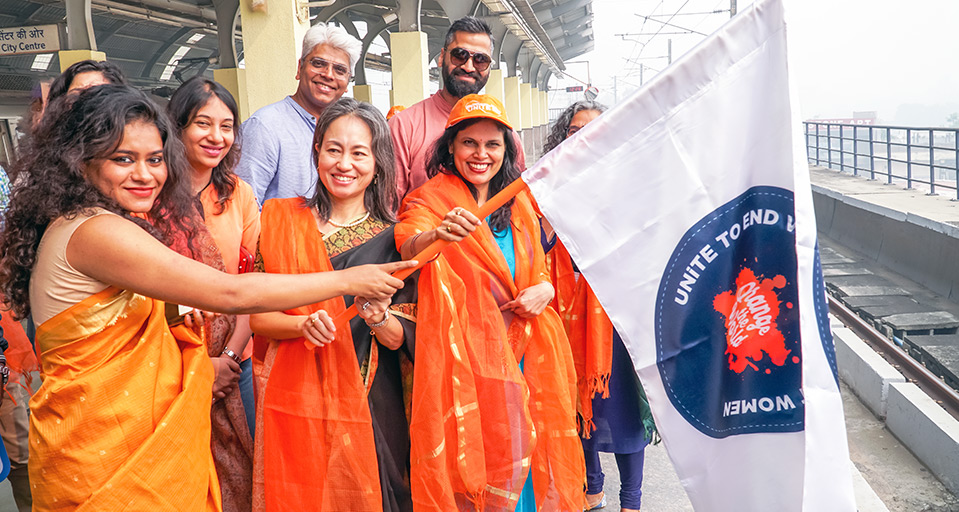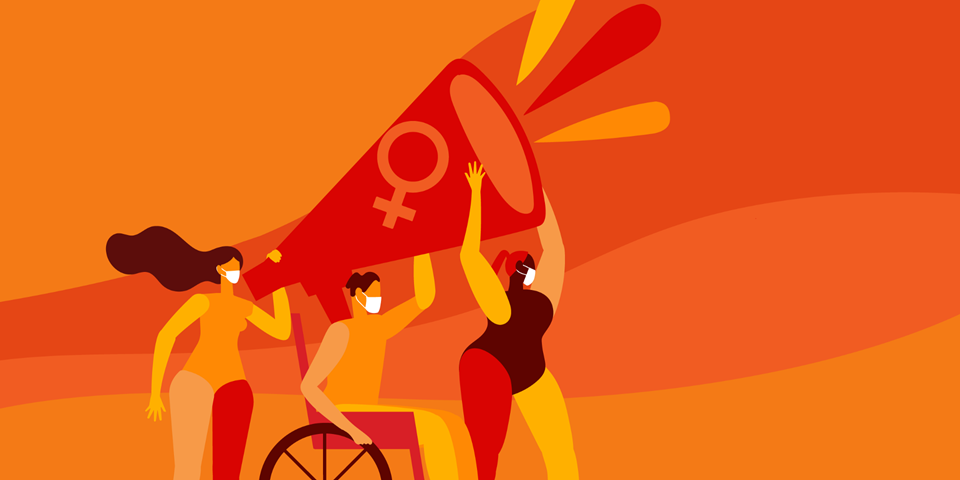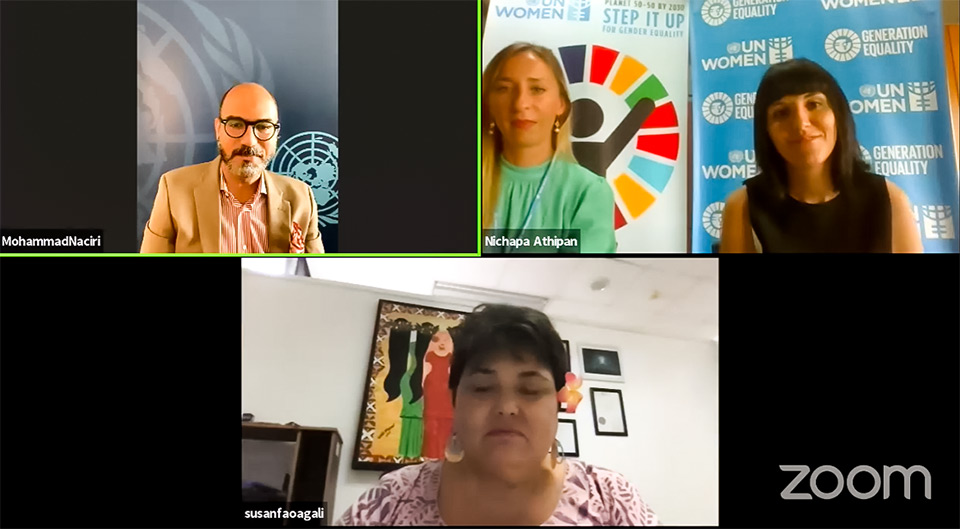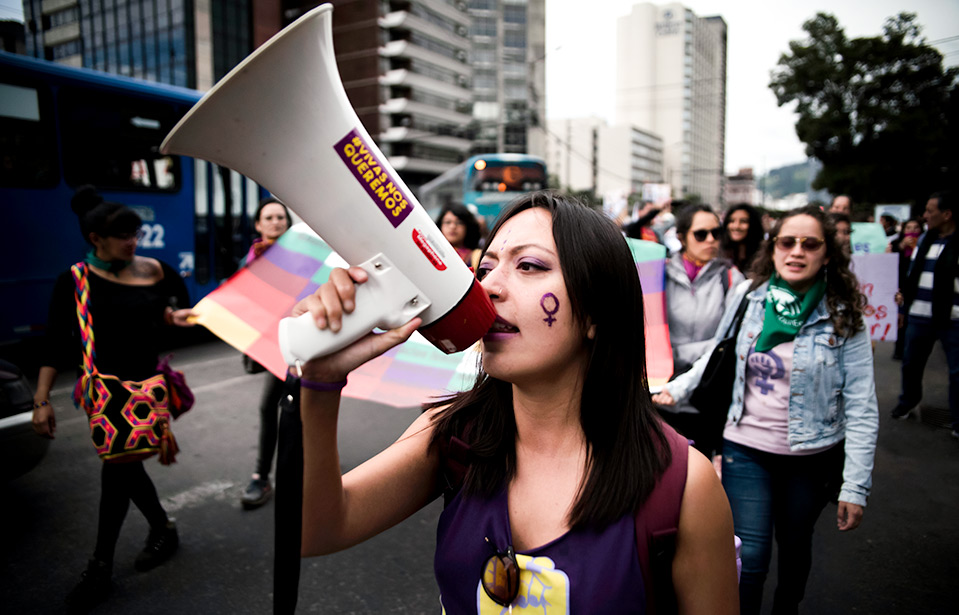16 ways, 16 Days: Your guide to ending violence against women
Date:
* This story was originally published on Medium.com/@UN_Women

The 16 days of Activism spanning from International Day for the Elimination of Violence against Women on 25 November, through Human Rights Day on 10 December, is an annual campaign against gender-based violence.
This is the time of year when a whole lot of people come together and speak out on one topic: ending violence against women and girls. In the streets, in schools, offices, villages and cities, every year, people around the world galvanize to raise awareness and take action during the 16 Days of Activism against Gender-Based Violence. This year, the 16 Days campaign is responding to the devastating impacts of the COVID-19 pandemic which has exacerbated key risk factors for VAWG, such as food shortages, unemployment, economic insecurity, school closures, massive migration flows and the threat of civil unrest. During the COVID-19 pandemic we have seen a rise in violence against women and girls around the world.
While so many stories have come to light and people all over the world are struggling, many voices are still silenced, many stories remain unheard, many never reach your social media feeds. This year, we’re coming together under the theme, Orange the World: Fund, Respond, Prevent, Collect!, to support civil society organizations and women’s rights organizations who are on the frontline of the response to ending violence against women and girls in the context of COVID-19. Here are a few ways you can get involved:
1) Listen to survivors
In the post era of #MeToo, #TimesUp, #NiUnaMenos and other online movements, survivors of violence are speaking out more than ever before, and it’s time to listen. Read stories of survivors and activists around the globe during the shadow pandemic here.
2) Know the facts

It is happening all around you. One in three women and girls around the world experience physical or sexual violence in their lifetime. You can learn more about the different forms of violence, and how it impacts women [here].
Education about the cause and consequences of violence against women and girls (VAWG) and sharing your knowledge is a powerful tool that can have long lasting impacts.
3) Take a stand #WithHer
The Spotlight Initiative is working with governments, civil society organizations, the media and other partners to eliminate all forms of violence against women and girls by 2030. Take a survey to help collect data and join the social media movement [here].
4) Support women's organisations who urgently need funding
Money matters. NGO's and CSO's are underfunded and need your support to provide critical services and care to women around the world. Donate to local shelters or helplines and the UN Trust Fund to end violence against women and girls.
5) You are not alone. Help is a call away
Share helplines available in your country to friends and family or on social media. You might not know someone needs help and these resources could provide lifelines to those in need.
6) Orange your profile picture and show support on social media
Turn the world orange. Use our Facebook frame, twibbon on Twitter, stickers or the filter on Instagram to orange your social media presence during the 16 days and raise awareness. Let your community know you are there for support, share support resources and information about available services.
7) Learn the language
The words and the language we use can perpetuate or break gender stereotypes. You can fight gender bias using gender-inclusive language that places both women and men on an equal level. Check out the United Nations guide to gender inclusive language, and UN Women’s searchable GenderTerm lexicon for more information.
8) Use your platform and speak up!
Use that megaphone that you have! You can use your platforms to inform and impact change with your friends, family and community. On our @unwomenasia Instagram account, look out for our challenges on Instagram Stories and content you can share to show people why you care, why you want an end gender-based violence. Make a personal commitment to not condone or accept violence, and to speak up about all form of violence including cyber violence. Tag us and use the hashtags #OrangeTheWorld #16days.
9) Attend an orange event or organize your own

Orange the world. This year’s activities for 16 days of activism will keep physical distancing in mind due to the global pandemic. But this means you can join 16 days activities from all over the world. Iconic buildings lit up in orange will take place during the 16 Days of Activism against Gender-Based Violence. You can learn more about the events in your area by following UN Women’s regional and country offices on Twitter.
10) Support one another
By standing together, we’re stronger. Supporting women and those that empower women, is essential to achieving gender equality and ending violence against women. Whether you reach out to the women in your life to check in, or get involved with a local women’s group, you can make a difference.
11) Know your rights
Violence against women and girls is a human rights violation. With this year marking 70 years since the Universal Declaration of Human Rights was signed, we’re calling for all women, girls and their families to be informed of their rights. Join the UN campaign, #standup4humanrights and learn how the Universal Declaration of Human Rights play a role in our lives every day!
12) Mobilize men and boys
Men are half the world, they are our brothers, fathers, sons, co-workers, and friends- bring them into this circle. Men and boys of all ages and walks of life must take a stand against violence against women and girls. Call on all the boys and men in your life to stand with you and women and girls, to end violence against women and all gender inequality. From joining the HeForShe movement to being advocates within their communities, men need to take steps in ending toxic masculinity. Here are five ways on how you can break up with toxic behavior and a self-learning booklet on understanding masculinity and VAWG.
13) Know the data and demand more of it
To effectively combat gender-based violence, we need to understand the issue.
Relevant data collection is key to implementing successful prevention measures and providing survivors with the right support. As gender-based violence has spiked during COVID-19, the gaps in gender-sensitive data collection have become more glaring than ever. Call on your government to invest in the collection of data on gender-based violence.
Find out at https://data.unwomen.org how UN Women works to bring about a radical shift in how gender statistics are used, created and promoted.
14) Learn the signs
By recognizing violence, we can end it. Worldwide, almost one third of all women who have been in a relationship have experienced physical and/or sexual violence by their intimate partner. A sudden or gradual change in appearance or behaviour can be an indicator that abuse or neglect has occurred (or may still be happening). Learn how to detect the signs of relationship abuse.
15) Have conversations with family and friends
Every woman and girl deserves to live a life free from violence and discrimination. Sometimes friends and family might not have the same knowledge as you do. Having conversations with family and friends about the negative impact of VAWG on individuals and communities can create an environment of understanding and help change perceptions on violence.
16) Spread the word

Now that you know the facts about gender-based violence and the signs of intimate partner violence, and have heard the stories from survivors, be sure to share with your friends and family. Check out UN Women’s social media package (in English, French and Spanish) for ideas on how you can share and amplify the voices of survivors and activists from around the world.